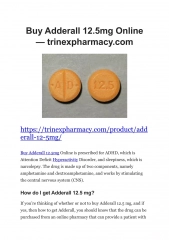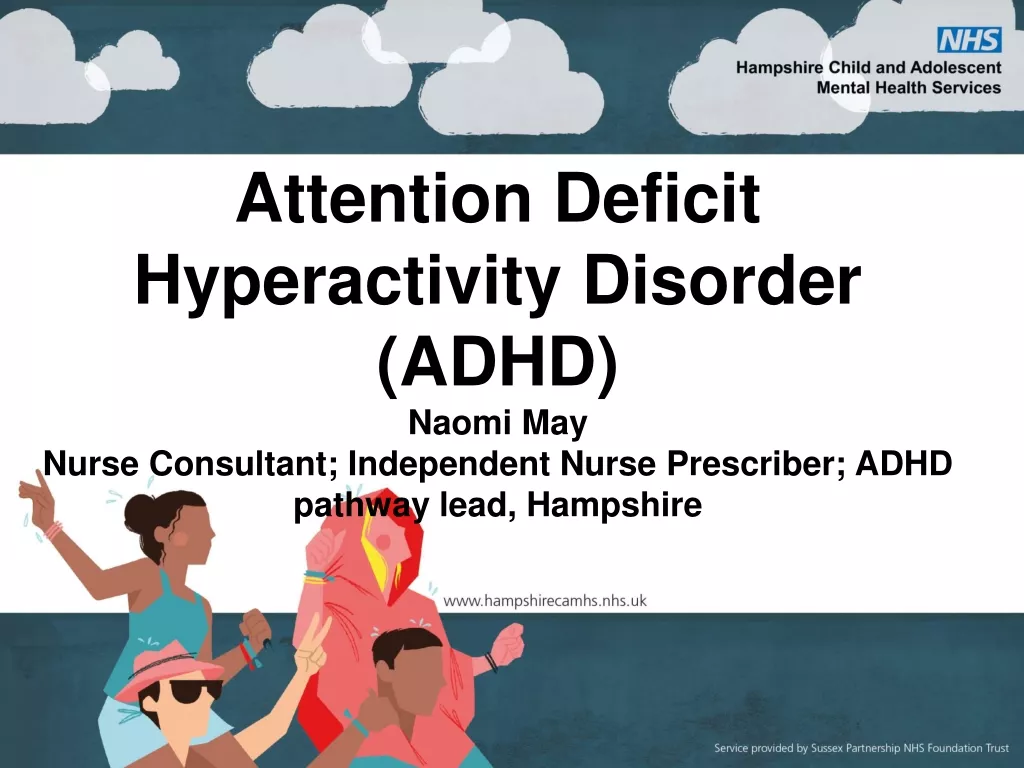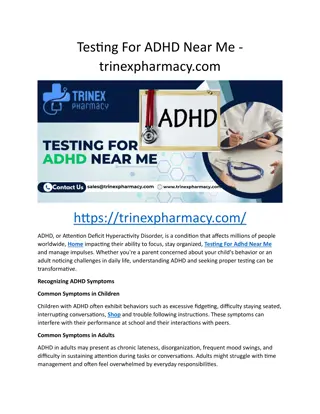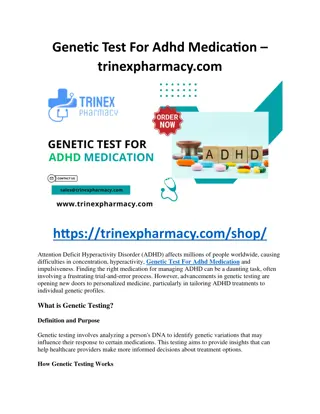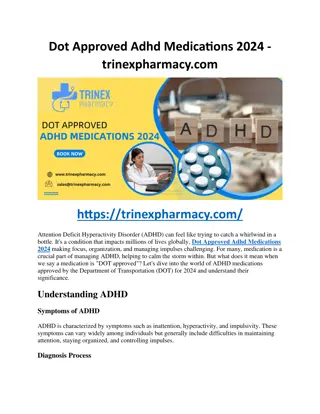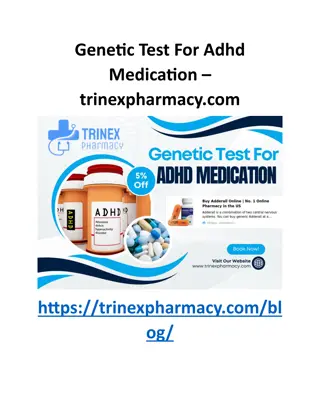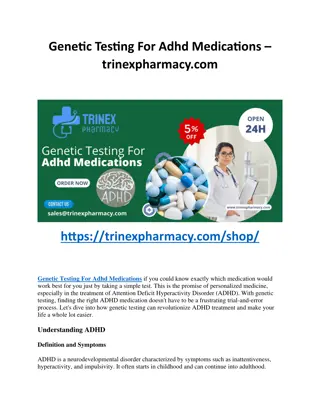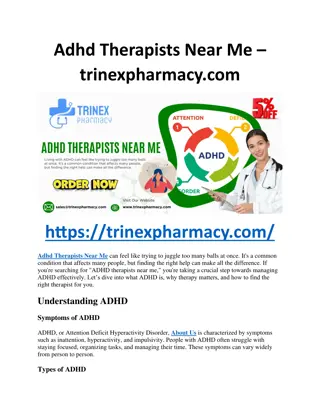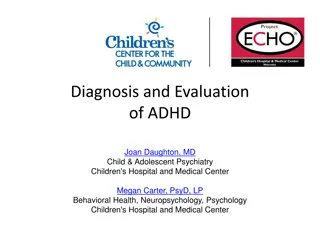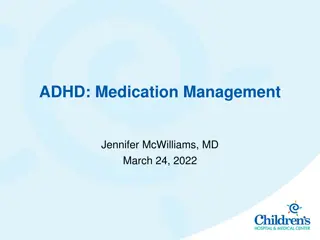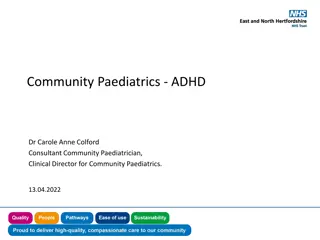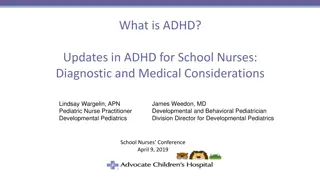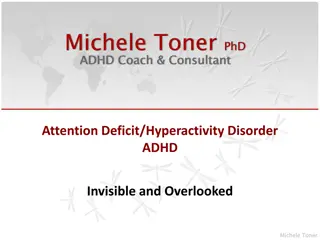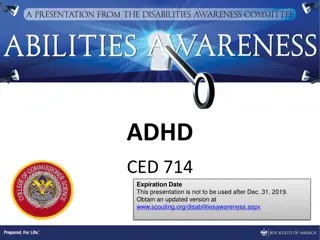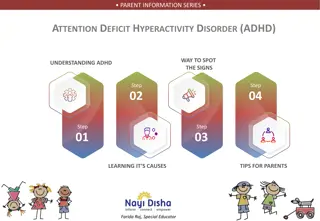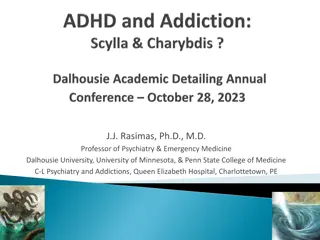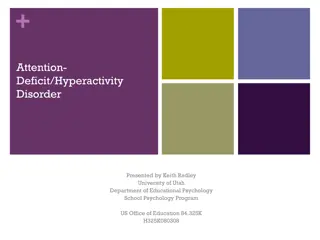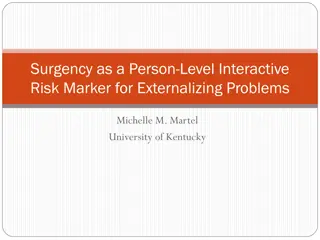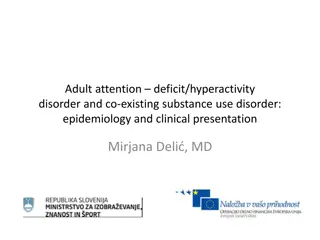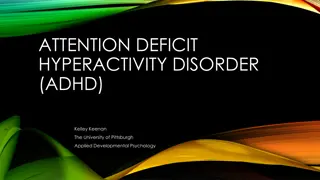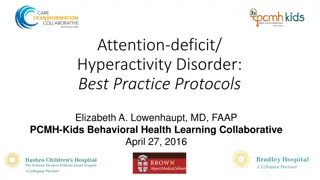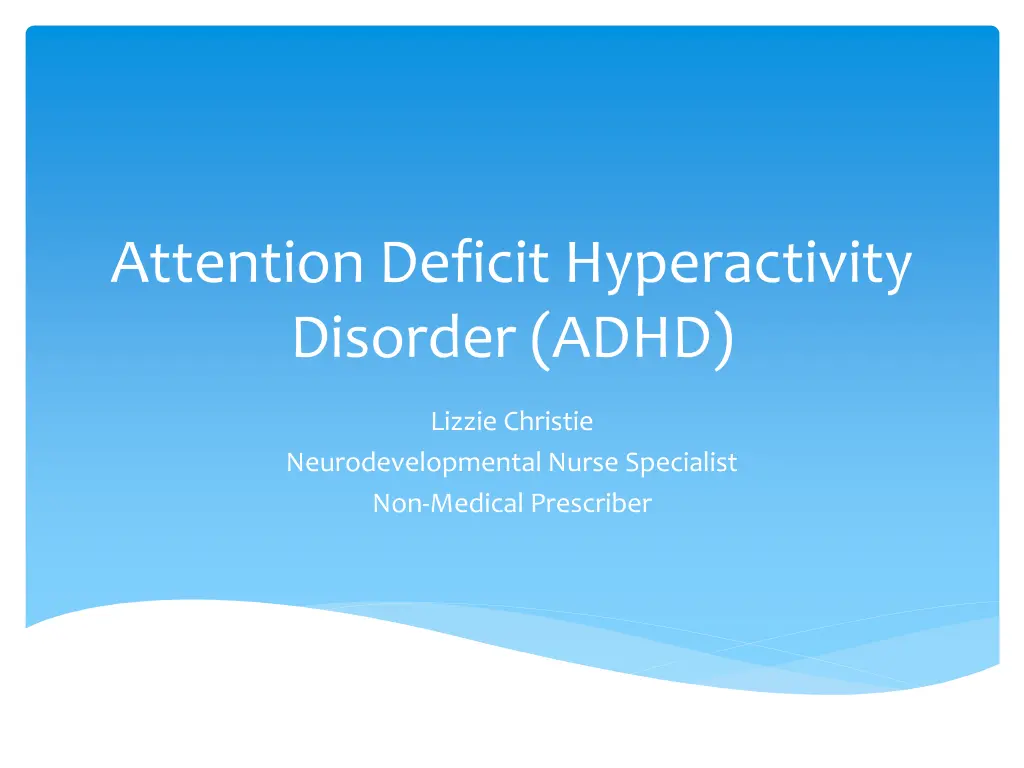
Understanding Attention Deficit Hyperactivity Disorder (ADHD) - Symptoms, Causes, and Management
Learn about Attention Deficit Hyperactivity Disorder (ADHD), a common childhood illness characterized by issues with attention, impulsivity, and hyperactivity. Explore the causes, symptoms, and key considerations for managing ADHD to support children's social and educational development.
Download Presentation

Please find below an Image/Link to download the presentation.
The content on the website is provided AS IS for your information and personal use only. It may not be sold, licensed, or shared on other websites without obtaining consent from the author. If you encounter any issues during the download, it is possible that the publisher has removed the file from their server.
You are allowed to download the files provided on this website for personal or commercial use, subject to the condition that they are used lawfully. All files are the property of their respective owners.
The content on the website is provided AS IS for your information and personal use only. It may not be sold, licensed, or shared on other websites without obtaining consent from the author.
E N D
Presentation Transcript
Attention Deficit Hyperactivity Disorder (ADHD) Lizzie Christie Neurodevelopmental Nurse Specialist Non-Medical Prescriber
Defective Moral Control (DMC) Dr George F. Still 1902 Dr. Still described children with spitefulness, cruelty, disobedience, impulsivity and problems with attention and hyperactivity
Definition Attention Deficit Hyperactivity Disorder (ADHD) is a common childhood illness. People who are affected can have trouble with paying attention, sitting still and controlling their impulses. Is a developmental disorder of self control. It consists of problems with attention span, impulse control and activity levels. (Barkley, 2005, p. 19)
More useful? A problem with inhibition Kids with ADHD are relatively brakeless. They are: Unable to put the brakes on distraction -> inattention Unable to put the breaks on inside thoughts -> impulsive Unable to put the breaks on acting upon distractions or thoughts -> hyperactivity
Causes Most of the theories that explains ADHD have no scientific support There is no diagnostic or blood test to determine ADHD The most acceptable theories with strong scientific evidence links ADHD to neurological abnormalities Hereditary basis ( family, twins and genetic studies)
Symptom Groups Inattention Does not attend Fails to finish task Can t organise Avoids sustained Effort Loses things Easily distracted Hyperactivity Impulsivity Fidgets Leaves seat Runs/Climbs Can t play/work quietly Always on the go Talks excessively Talks excessively Blurts out answers Can t wait turn Interrupts others
Key issues for those working with children If ADHD and its symptoms are not managed appropriately, detrimental effect on child s ability to interact with peers and to develop socially and educationally It has been demonstrated that undiagnosed and untreated ADHD can lead to major social and behavioural difficulties The evidence suggest that diagnosis is very often made by health professionals with reference to information from teachers, other professionals and parents (NB. QB Test Objective measure) Children with ADHD are amongst the most vulnerable for abuse and neglect
Key issues for parents / carers Without treatment, a child with ADHD may fall behind in school and have trouble with friendships Family life may suffer, with a strain being placed on the parent / carer and child relationship Parents often blame themselves when they can t communicate with their child The sense of losing control can be frustrating
Key issues for parents/carers Teens with ADHD are at increased risk for driving accidents Adults with untreated ADHD have higher rates of divorce and job loss, compared with general population BUT safe and effective treatments are available which can help children and adults help control the symptoms of ADHD and prevent unwanted consequences
Specific accommodations Teaching children with ADHD requires a team approach Consistency in rules at home and school Constant communication between parents and school Seating the child near a good role model Increasing the immediacy of rewards and consequences Providing short breaks
Long term goals Try to adopt positive descriptions for the student, e.g. instead of saying a student is distractible say they have high levels of awareness Use assertive and positive communication, e.g. tell students what is required instead of what is not required Encourage positive self-talk and internal control Students may benefit from having a mentor to help them to develop their academic and social skills
Short Term Goals Focus on tangible, short term steps rather than long term plans Agree a concrete starting point to help prioritise and avoid procrastination Provide structure and routine Encourage the use of colour coded ring binders or notebooks for each subject Encourage use of daily reminder schedules / to do lists and highlight priorities
Impact of untreated/under- treated ADHD Health Care Patient / family Employer School Society
Therapy options as part of a total treatment programme Behavioural treatment Medication Combining medication and behavioural treatment Educating parents(carers) / patient about ADHD Educational Support services
Effectiveness of Behavioural Therapy Parent training is generally regarded as the most effective behavioural therapy ( NFPP, ADHD Factor) Parent training combined with medication management increases parents acceptability of medication School based treatment is more effective than individual strategies, however benefits are only seen during treatment programmes Individual treatment approaches have not been shown to be effective
Type of medication Stimulants Methylphenidate (modified or immediate release) Non-Stimulants Atomoxetine Antidepressants Tricyclic antidepressants Imipramine Antihypertensive Clonidine Antipsychotics Rispiridone

